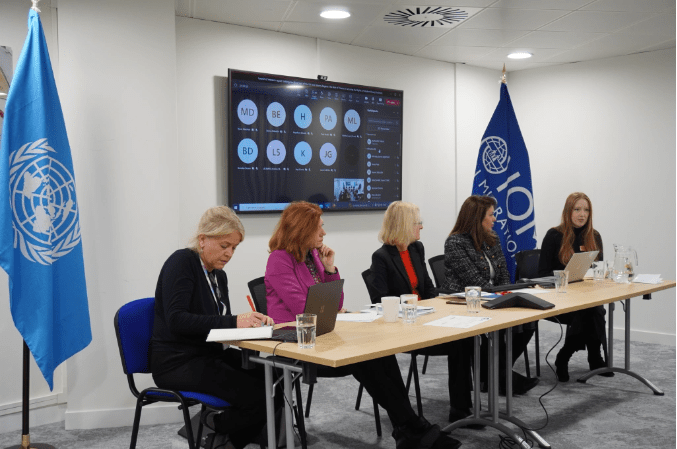Groundbreaking research led by Essex Law School’s Senior Lecturer
Dr Marija Jovanovic uncovers the realities of modern slavery survivors in UK prisons in a report published on 28 November 2023. The report,
Tackling the blind spot of the UK anti-slavery regime: the role and responsibility of prisons in securing the rights of modern slavery survivors, contains findings from a 12-month research project conducted in partnership between the University of Essex, the
International Organization for Migration (IOM) in the UK and
Hibiscus Initiatives. It was commissioned by the Modern Slavery & Human Rights Policy and Evidence Centre (
Modern Slavery PEC), which in turn is funded by the
Arts and Humanities Research Council (AHRC).
The research combined a doctrinal analysis of the relevant law, policy, and secondary sources with interviews with a range of stakeholders including adult survivors of modern slavery who had been in prison in the UK, NGOs, prison administration and staff in all three devolved jurisdictions, solicitors, police officers, and other experts. A survey was also conducted with Modern Slavery Single Points of Contact (SPOCs) recently appointed in all prisons in England and Wales.
Dr Jovanovic and the IOM UK hosted a high-profile launch event on 28 November 2023 with more than 110 people in attendance, both online and in person. The speakers were the Chief of Mission of the IOM in the UK, the Executive Secretary of the Council of Europe’s expert group on human trafficking (GRETA), the Policy Lead on Modern Slavery at His Majesty’s Prison and Probation Service (HMPPS), the Director of Policy Impact at Modern Slavery PEC, and Head of Policy and Public Affairs at Hibiscus Initiatives.
The report reveals the reality of how countries treat modern slavery survivors, which is more complicated than commonly thought. Dr Jovanovic pointed out that contrary to the clear and express international obligations of states to identify and protect the survivors of modern slavery and prosecute and punish the perpetrators, “it is not out of the question that there might be more survivors than perpetrators in UK prisons”. Instead of being protected, many survivors are sent to prisons sometimes for the crimes they were forced to commit by their traffickers. Jakub Sobik from the Modern Slavery PEC
said: “Prisons represent a missing piece in the UK’s response to modern slavery – this groundbreaking research is the first one to fill this gap, even though there’s clearly more to uncover.”
The research identified key challenges in the UK’s complying with its international obligations to identify and protect every survivor of modern slavery, including those in prisons. They
include: the lack of systematic information-sharing between prisons and the designated Home Office Competent Authorities in charge of victim identification; insufficient training of prison staff about the issue of modern slavery; prison staff not being authorised to refer potential victims to the National Referral Mechanism designed to facilitate victim identification and support; and barriers to disclosure in prison.
The report also includes proposals for a number of legal, policy, and practical measures required to bring current practices in line with requirements arising out of international and domestic law.
For more details of the research and report, you can find the press release
here and the full report
here.



